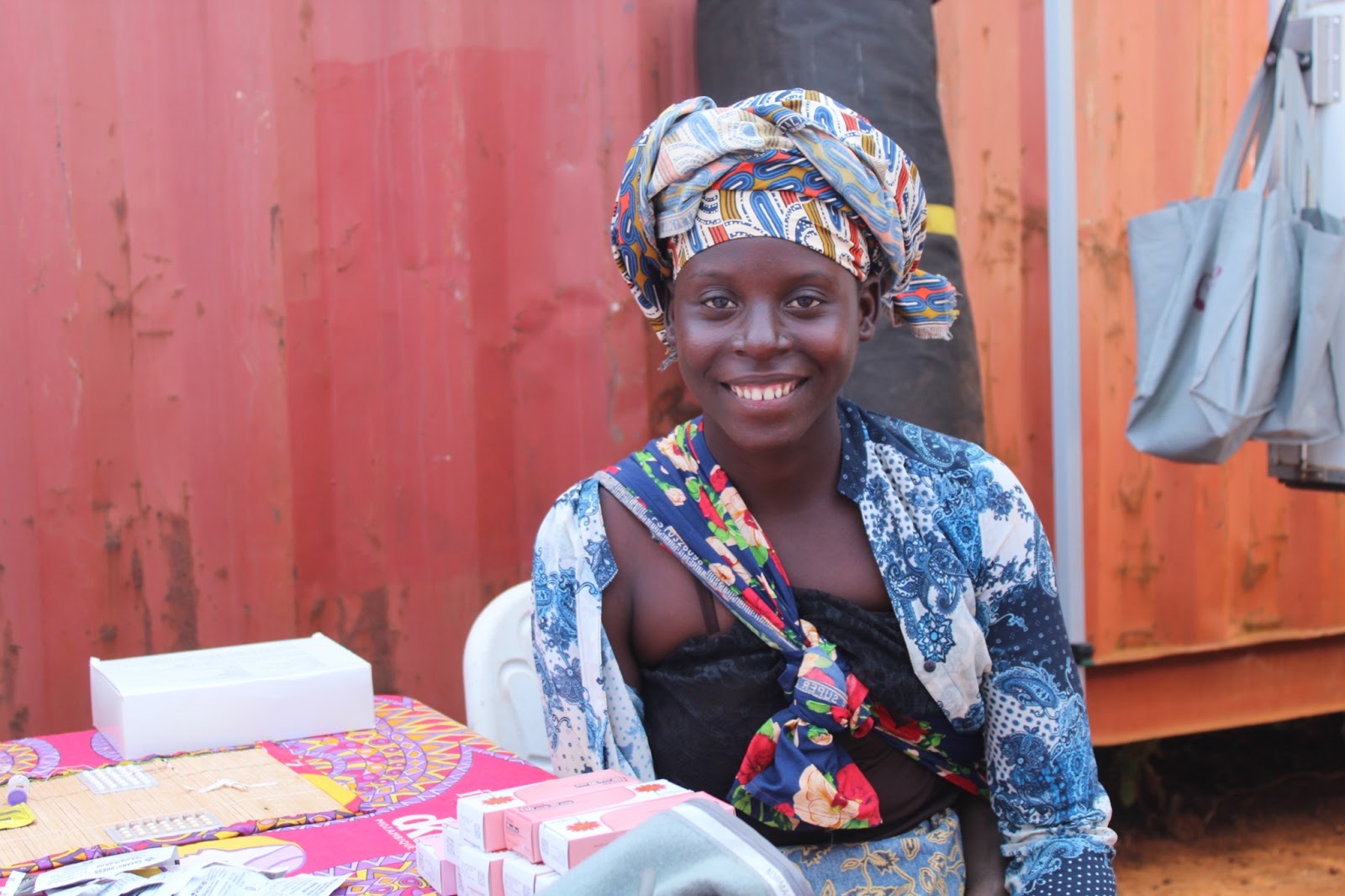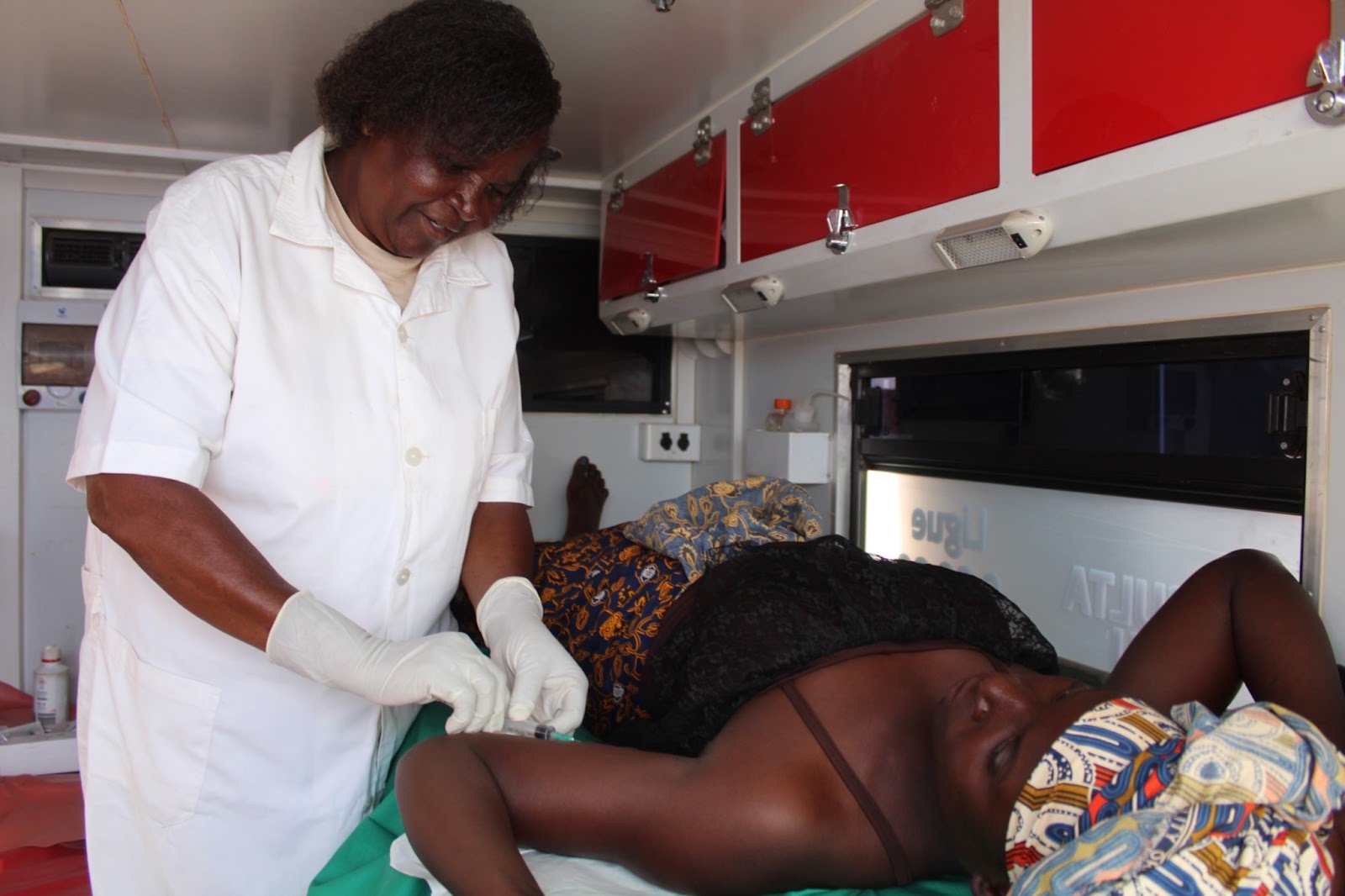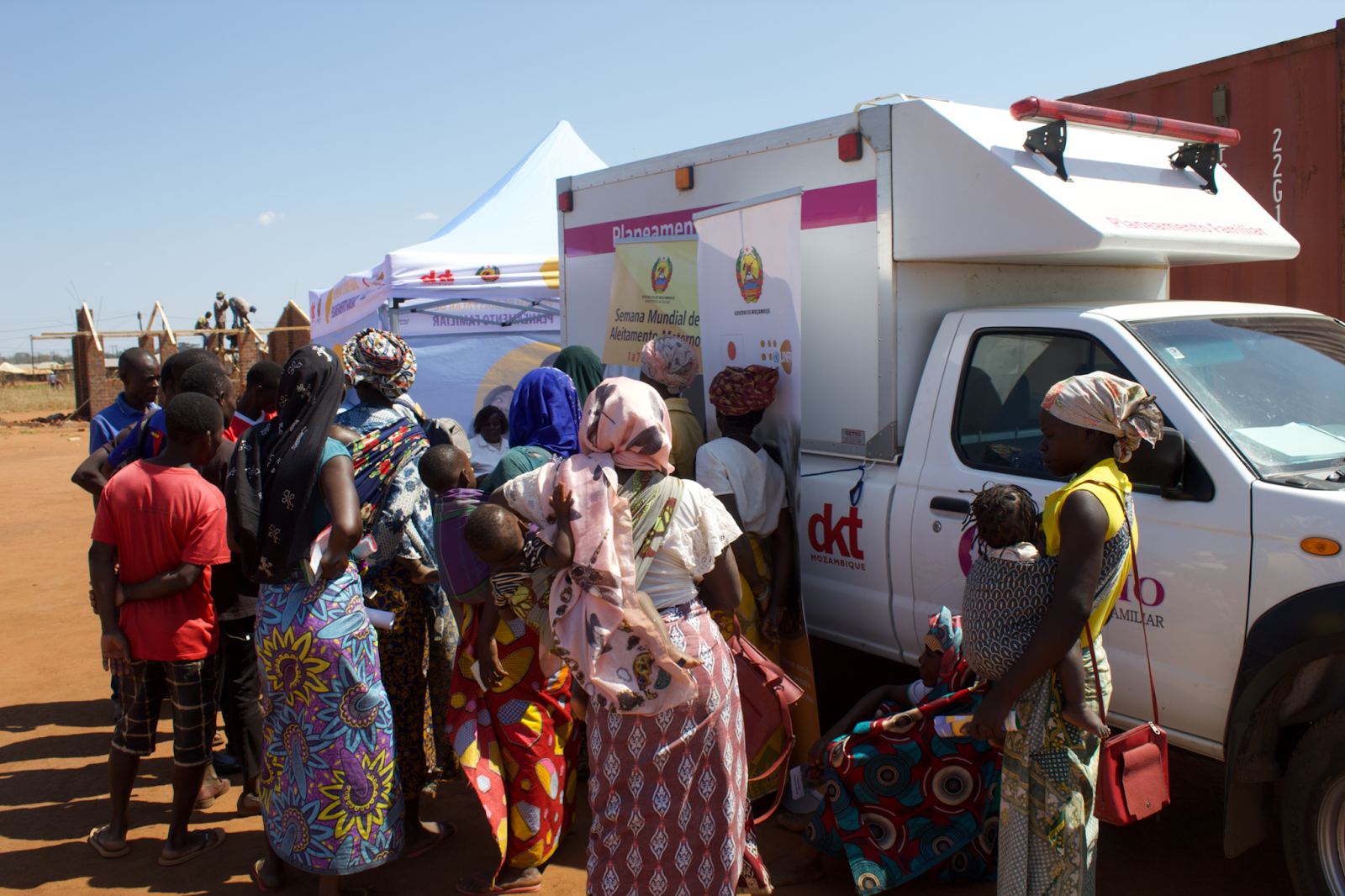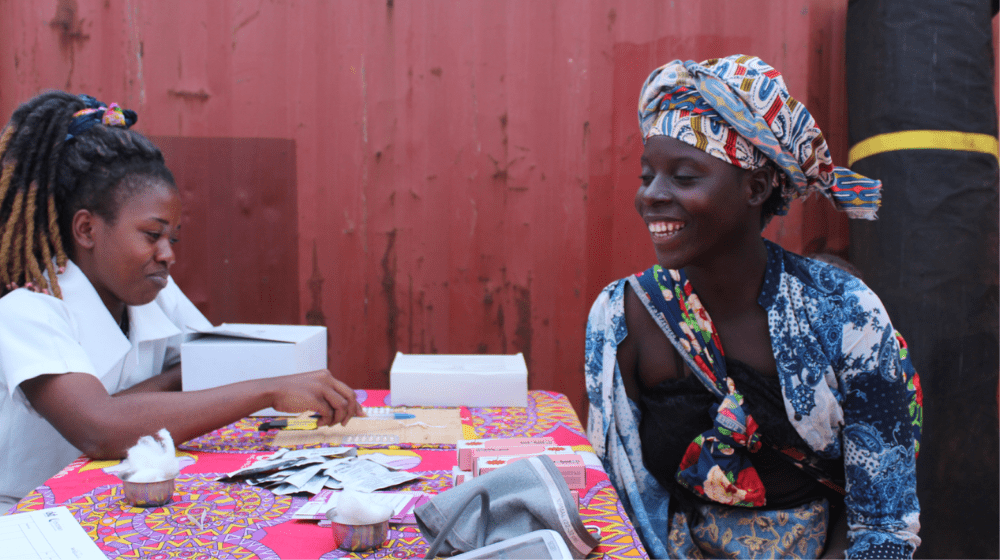"Apprehensive and hesitant," are the feelings 18-year-old Fátima António uses to describe her choice of contraceptive methods, a day before the arrival of a mobile brigade that would share information and offer various family planning services for people based in a displacement camp in Nampula province, Mozambique.
While a team of nurses and activists prepare to attend to the community, Fatima and a small group of women and girls wait in a small line that was being formed in the early hours of the day.
"I'm quite anxious, not least because it's the first time I've decided to start using family planning," says the young woman.
A mother of a 5-month-old boy, Fatima has been living in the displacement camp for about three years, having fled attacks in Cabo Delgado as violence escalates in the north of Mozambique. Only recently has she started receiving information about contraceptive methods, admitting she has never used one before. "The activists made me aware of the benefits of contraceptives. I initially had some doubts about which method would bring me advantages," she explains.

However, Fatima's doubts began to dissipate when she sat down in front of the nurse, Luisa, who was leading the mobile brigade at that site. From the list of methods that was made available to her, she opted for the contraceptive implant, stating: "This method offers me more confidence that I won't get pregnant again for the next two years" and adds: "I can now go back to school, because I no longer run the risk of interrupting my studies because of an unplanned pregnancy".
This concern is one that paints a worrying picture in the province of Nampula, where nearly half of girls ages 15 - 19 (44%) are teenage mothers (AIS 2015).
Noticeably happy with her decision, Fátima didn't hide that in the beginning she was afraid and receiving contradictory information from other girls. With the support of the nurse Luisa, she is more confident, well-informed, and says she will raise awareness among her peers.

According to Luisa, the activists have been raising awareness in the communities about different methods of family planning, as part of UNFPA projects funded by donors including the Government of Japan, the European Union through the Spotlight Initiative, and through the UN Central Emergency Response Fund (UN CERF).
Knowing that timely access to health facilities and health units remains a challenge, particularly in areas impacted by the conflict, mobile brigades travel long distances and traverse tough terrain to provide remote-based sexual and reproductive health and gender-based violence prevention and response support, information and counselling to women and girls. In 2022, mobile brigades in Nampula conducted more than 80 mobile clinical visits, supporting more than 6,600 women and girls to adopt a modern method of contraception.
Amidst worsening conflict and violence in provinces including Cabo Delgado and Nampula, mobile brigades serve as a lifeline to women like Fatima to receive timely and much-needed family planning and sexual and reproductive health services and support, reducing risks of unintended and unwanted pregnancy, and empowering women and girls to make decisions over their body and future.



